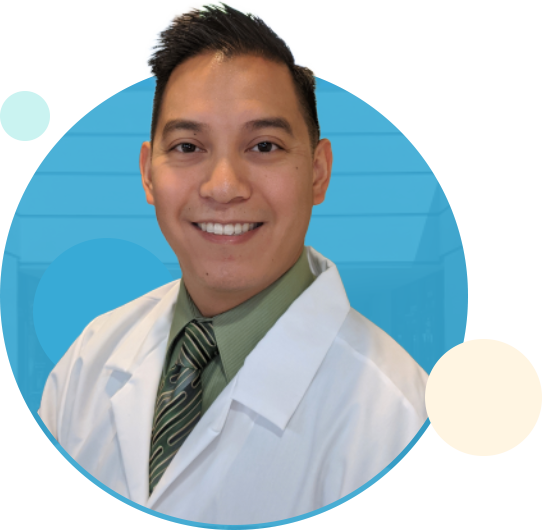
Here at our office, your dental health is our top priority. Whether you are coming in for a cleaning, a painful emergency, or a major smile makeover, Dr. Rillera will make sure that you are fully informed, comfortable, and happy with each experience at our office.
Let us answer your questions about Rillera family dentistry and how we handle patients and dental questions
Please bring your dental insurance card, a valid photo ID, and a list of your prescription medications if you are taking any. Additionally, to save time on the initial paperwork, you may download the new patient forms here and print them out to bring with you. If you decide to just fill out the paperwork at our office, we ask that you please arrive 10-15 minutes early.
Unfortunately, many people do not go to the dentist for their routine checkups every 6 months. They only go when they have a problem or if something is causing them pain. At this point, the problem has progressed significantly and may even require a root canal or extraction of the tooth. While these patients may feel they are saving money by not going to regular visits, the cost of treating that tooth with a severe problem usually ends up costing more in the long run. If the tooth decay had been detected at an early stage, a simple dental filling may have been enough to fix the problem. Dr. Rillera strongly believes that the best approach to dentistry is a preventative approach. Regular exams and cleanings will help to take care of dental problems early, often with less invasive and less expensive treatment.
Radiographs are a crucial part of your exam, allowing Dr. Rillera to assess your dental health with all the necessary diagnostic information. By not having the recommended radiographs, conditions may arise that could have been prevented, detected earlier, or treated with a less expensive option. Several dental issues can only be visualized with radiographs, such as bone loss, tooth decay in between the teeth, infections, cysts, and even tumors. Not diagnosing these issues early can lead to more pain and discomfort, more expensive treatment, losing teeth that might otherwise be saved, and not detecting growths until they are very large.
Dental x-rays have surprisingly low amounts of radiation. To put things in context, the National Council on Radiation Protections and Measurement estimates that the average person is exposed to 6.2 millisieverts (mSv) of radiation per year. Half of this is from natural sources (soil, radon, etc.) and the other half is from man-made sources such as medical/dental x-rays. A single intraoral dental x-ray accounts for a dose of 0.005 mSv, which is only about 0.08% of your annual average effective dose.
If you are experiencing a dental emergency such as severe pain, a traumatic dental injury, or a large infection, our after-hours emergency line is (702) 972-2148. Dr. Rillera or a member of his team will answer this emergency line on nights and weekends when the office is closed. We can discuss your case over the phone, and either give you a prescription or provide any other emergency support needed.
No, if your child is a minor, then a parent or legal guardian must accompany him or her in order to consent for any needed treatment.
To replace missing teeth, there are removable and fixed options. Removable options include complete dentures and partial dentures. These prostheses must be cleaned and taken out at nighttime. If you want something that stays in permanently and that cannot be removed, then fixed options include dental implants or dental bridges. Dr. Rillera will explain these options thoroughly with you and will give his recommendation based on your needs and preferences.
Dr. Rillera can provide single-dose oral sedation. This is done by prescribing you a medication (usually a drug in the same class as Valium) that you will take immediately prior to your dental appointment. You will still be awake and conscious, but the medication will decrease your anxiety and make you less aware of the procedure. Since you will not be able to drive yourself, you will need someone to drive you to and from your appointment.
Every day! Brushing alone does not take away all the plaque in between your teeth.
Absolutely! Preventive and restorative dental treatment, as well as local anesthetic, are safe during pregnancy. Pregnant patients have been found to be more prone to gingivitis. Additionally, the latest research has found a relationship between periodontal disease (gum disease) and adverse pregnancy outcomes such as pre-term birth and low birthweight babies.
Even though denture patients don’t have to worry about tooth decay anymore, it is still important to come in at least annually to have your dentures examined for proper fit and function, as well as to have the underlying gum tissue examined. The bone underneath dentures gradually resorbs over time, so dentures may need to be relined periodically to achieve a better fit.